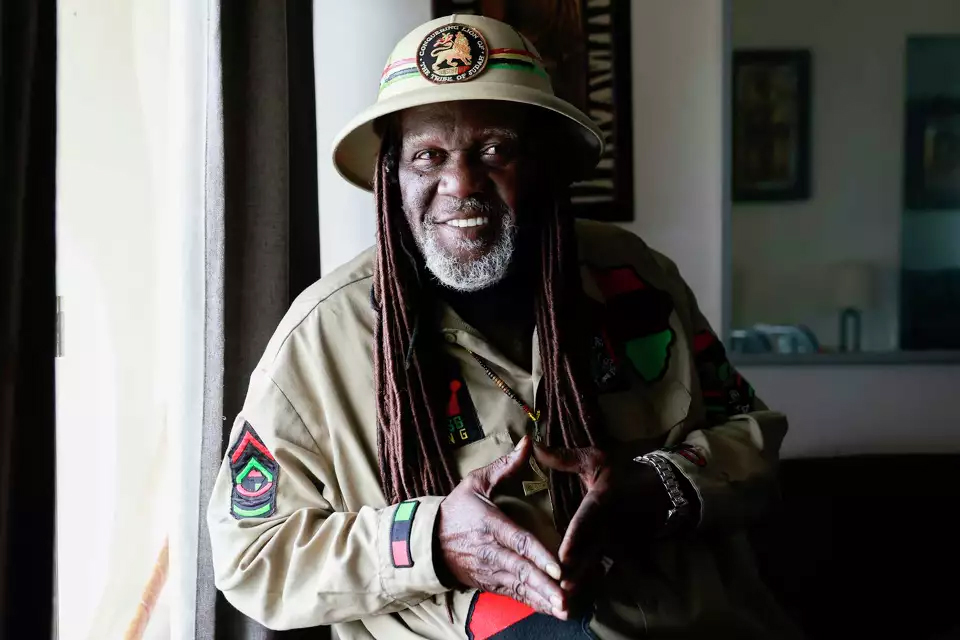Cars packed the parking lot at the Monument Crisis Center in Concord by 9:30 a.m. on a recent autumn morning, just half an hour after food distribution began.
Local residents trundled utility carts across the pavement, ferrying fresh fruit, frozen chicken and pantry staples to their vehicles. Around a dozen people stood in line just outside the building’s entrance, awaiting their turns to receive supplies.
Monument Crisis Center, located on Market Street west of downtown Concord, faced a surge of people during the pandemic — and the need has only risen recently amid soaring food prices.
“We see between 250 and 350 households every time we open our doors,” deputy director Danny Scherer said. “It’s just a lot more people struggling.”
Concord resident Meli Mori has come to Monument Crisis Center for food for two years.
Food insecurity affects more than 1 in 5 Californians, according to the California Association of Food Banks. The latest rates are even higher than those during the early months of the pandemic in 2020, when widespread layoffs upended people’s lives.
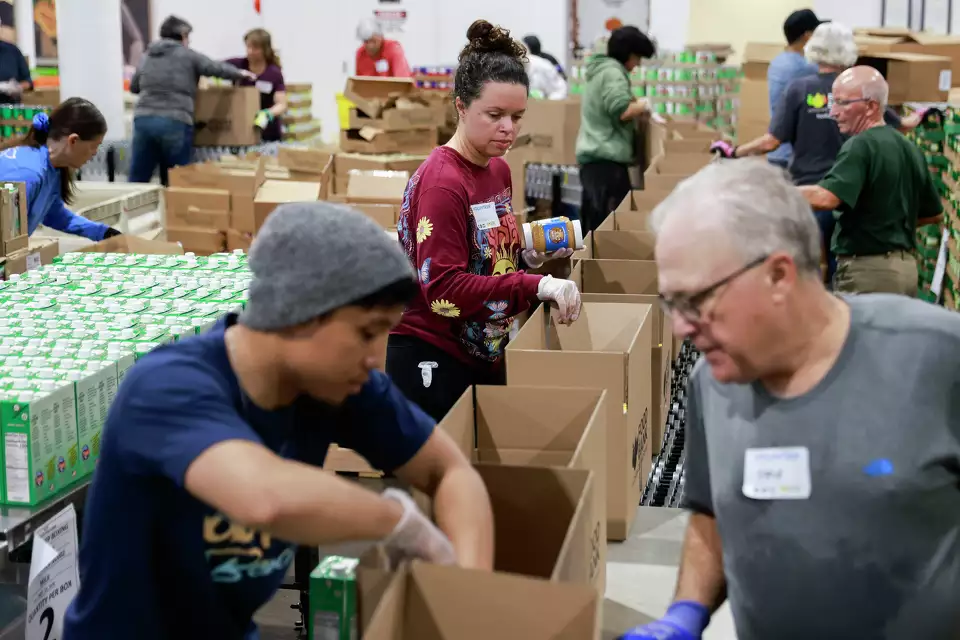
Monument Crisis Center is one of 260 local nonprofits supported by the Food Bank of Contra Costa and Solano. Through these partners — which include food pantries, soup kitchens, child care centers and other organizations — and direct delivery to communities, the food bank serves an average of 65,000 households per month, said president and CEO Caitlin Sly.
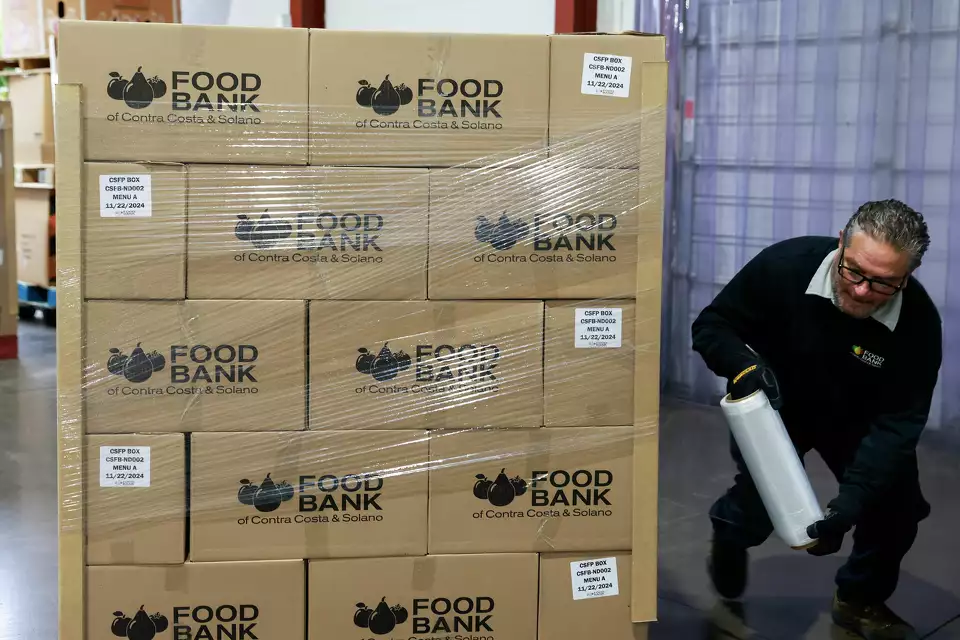
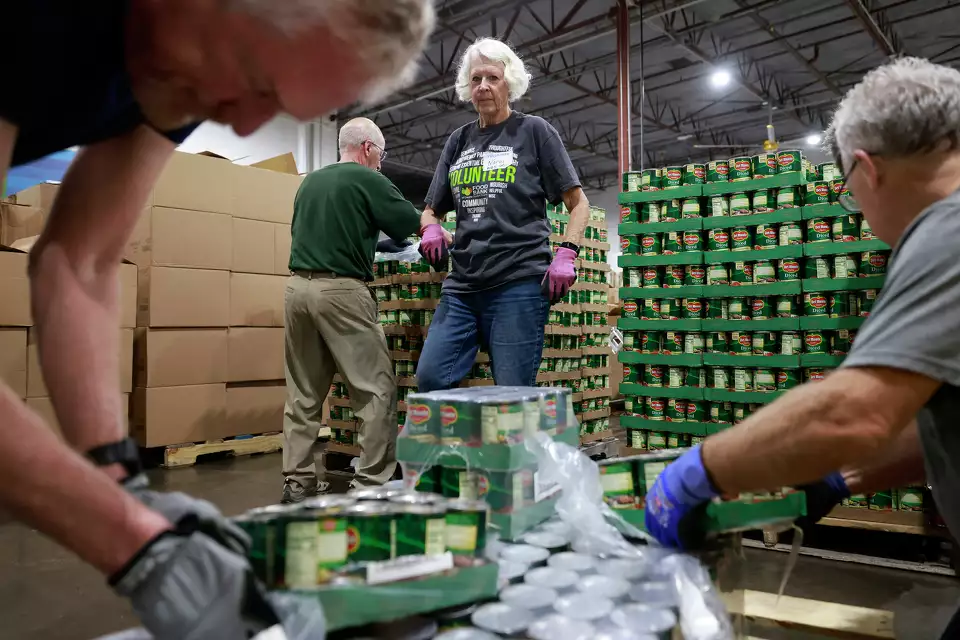
“We haven’t seen the need come down,” Sly said. “We may have people back to work, but they’re not making enough to make ends meet. Housing costs, utility costs, food costs, medical costs — all of it is really impacting people in need throughout our community.”
Food banks have also been hurt by high food costs: From 2019 to 2023, food prices increased by 25%, according to the U.S. Department of Agriculture. This has challenged the Food Bank of Contra Costa and Solano, which purchases a large portion of the food it distributes.
“Our dollar doesn’t go quite as far either,” Sly said.
Community support has been invaluable. The Food Bank of Contra Costa and Solano is one of several food banks across the Bay Area supported by the Chronicle Season of Sharing Fund. Through funds raised from the 2023-24 campaign, Season of Sharing distributed $1,861,000 to Bay Area food banks — the equivalent of 3,908,108 meals.
“Season of Sharing helps us buy those things that we probably wouldn’t be able to afford otherwise,” Sly said. The food bank efficiently puts 97 cents of every dollar donated toward supporting programs and providing food, Sly added.
Since its founding in 1986, the Chronicle Season of Sharing Fund has been one of the largest donors to Bay Area food banks, contributing more than $28 million to help provide meals for community members who might otherwise go without. The fund also provides housing and critical needs assistance to Bay Area individuals and families who are experiencing crises.
The Food Bank of Contra Costa and Solano also benefits from the support of volunteers.
“It’s amazing how the community gets involved,” said longtime food bank volunteer Gary Morin.
Last year, 8,000 people contributed over 100,000 volunteer hours, according to the food bank’s 2023 impact report. Volunteers hand out groceries at community sites and pack up boxes of food at warehouses in Concord and Fairfield. They divide up 600-pound totes of apples, onions and other produce into more manageable 3-pound bags, Morin said.
“One of the things that impresses me is how healthy the food is that we give out,” said fellow volunteer Bill Drury. Nearly two-thirds of the food distributed last year was fresh produce, proteins and dairy, according to the 2023 report.”
“We are very, very lucky to be in a community where people really give back and they care about their neighbors,” Sly said.
Leo and Cathy Harrod are co-organizers of the Community Meal program at St. Paul’s Episcopal Church in Benicia, with Donna Marshall. The program provides free hot meals and groceries, supported by the Food Bank of Contra Costa and Solano.
Amid skyrocketing demand during the pandemic, the program expanded from one day a week to two. Like at Monument Crisis Center, the need remains high.
“We’re easily doing 300 meals each day,” Leo Harrod said.
The food bank has been more than generous, the Harrods said, but because it hasn’t been getting the donations it used to, the meal program has been receiving fewer supplies.
“Unfortunately, we’re considering going back to just serving the meals one day a week,” Cathy Harrod said. She added that the church is also reaching out to sponsors to keep the program sustainable amid continued demand: “We would like to keep our doors open as long as we can.”
Reach Jack Lee: jack.lee@sfchronicle.com
Photos by: Jessica Christian/The Chronicle
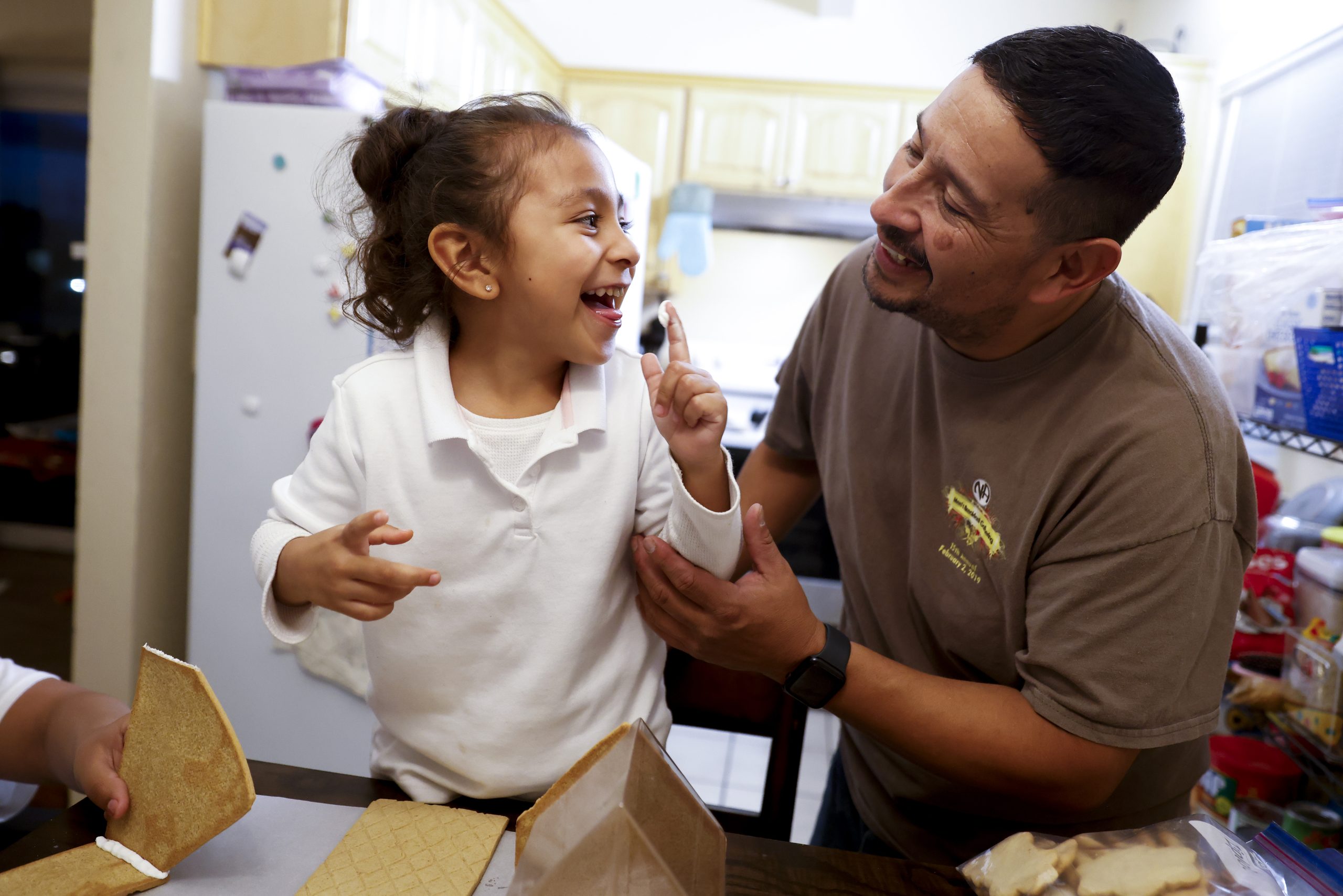
At Season of Sharing Fund, we believe that an unexpected financial crisis should never mean losing your home. Preventing homelessness isn’t just kind—it’s also the most effective way to keep our communities thriving. 100% of your donation keeps Bay Area residents housed, cared for and nourished.
